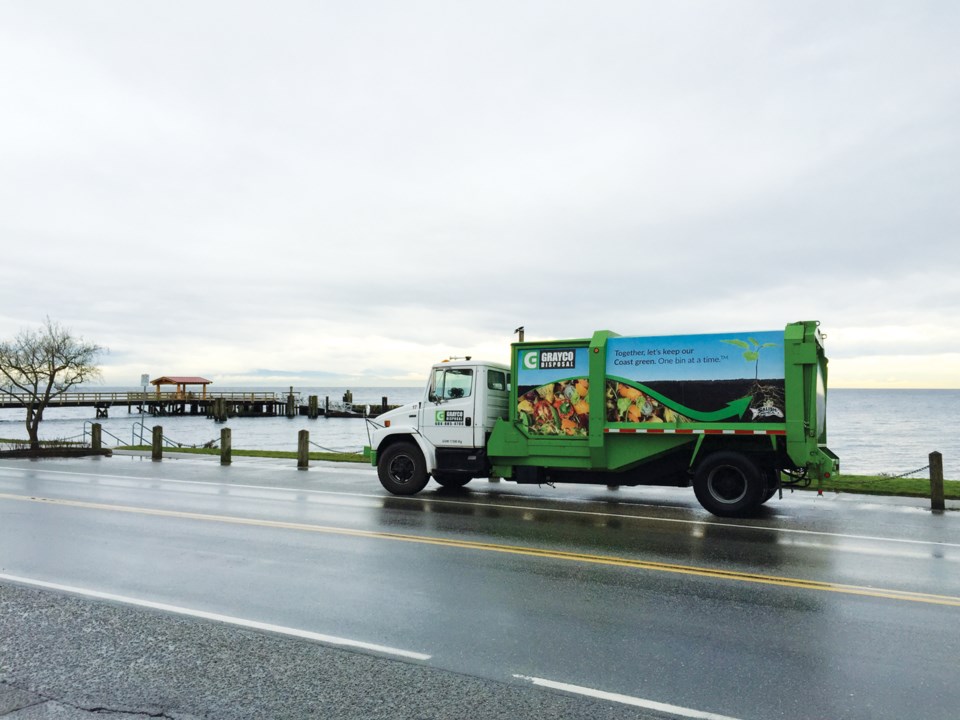The District of Sechelt has confirmed it’s going ahead with a full-scale curbside organics collection program, and making immediate changes to curbside recyling.
District officials said after a positive council vote Feb. 7 the start date of the expanded program could be in the spring of 2019 when the current curbside waste contract is up for renewal.
Sechelt has been running a pilot program serving about 500 homes in the Davis Bay area since May 2014, which the district estimates has diverted and processed over 577 tonnes of organics so far.
A Feb. 26 release quotes Darwyn Kutney, director of engineering and operations. “Diverting waste from the landfill is a council environmental priority, but from a cost perspective it also just makes good sense,” Kutney said. “We can pay $150 per tonne of garbage at the landfill or $80 per tonne for processing organics.”
Councillors on Sechelt’s public works, parks and environment committee voted Jan. 24 to recommend the district join Recycle BC’s (the former Multi Material BC) Packaging and Printed Paper collection and processing program and use the savings and extra revenue to fund organics collection.
A staff report prepared for that meeting said joining the Recycle BC program could save the district approximately $142,000 in collection and $168,000 in processing costs per year.
An immediate change that’s coming as part of the shift to Recycle BC and the expansion of organics pickup is the elimination of film plastic from curbside recycling.
Film plastic includes all plastic bags and overwrap used for foods.
The district announced this week that it will no longer accept that material in recycling bins.
Paul Appelt, engineering technician, said: “Film plastic has always been an issue; however, when Sechelt started our curbside recycling program, our collector had a method to sort the film plastic and a market for the separated material – this market is no longer available. The biggest recyclables customer in the world, China, now demands less contamination and better source separation of materials. Though somewhat of an inconvenience, this new film plastic recycling method ensures that the film plastic is recycled and not deposited in a landfill.”
Film plastic can still be recycled by taking it to the recycling depot as long as it is sorted from hard plastics.



